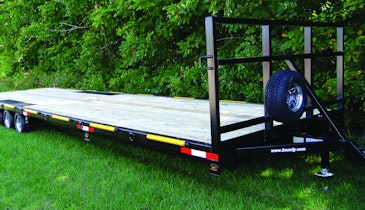Interested in Business?
Get Business articles, news and videos right in your inbox! Sign up now.
Business + Get AlertsHow many times do you hear, “The customer only cares about the price?” Many small-business owners say they hear it all the time. Price is only an issue when it is presented as the only benefit (or primary benefit). Regardless of industry, product and economy, a company does not need salespeople to sell price. For that, all they need is a website or catalog and a payment processor.
If your small business wants to increase sales and margin, you need to learn how to establish real value, share the information with your team, practice doing it over and over again. The difference between an amateur and a professional is that professionals practice their skills. The key to overcoming price is not a scripted, catchy phrase. Rather it is learning how to create a real value partnership, and in order to do that, you must practice.
Find the value you offer
Selling value is more than making statements like, “We offer great customer service,” “We have experience and expertise” or “Our people make the difference.” When asked about the value offered, these are the most common answers given by folks trying to make sales.
But this is no different than a person going on a job interview and telling the interviewer they should be hired because they are a self-starter, team player, people person, motivated and loyal. All of these answers are generic and do not differentiate you from the next person.
Rather, value is determined by the prospect.“What value do you add?” is a trick question because it can only be answered after you understand what the prospect or client defines they believe is value. To determine what the customer perceives as value, you must ask the prospective customer purposeful questions and a lot of them. The more you learn and understand, the more likely you will establish value according to the prospect.
Too many times, businesses flood a prospect with information on what they have to offer without knowing whether or not these factors will be a value to a client. It cannot be stressed enough; ask questions before explaining the value you bring!
What to ask?
The sales call should be about more than just asking open-ended or leading questions. Most salespeople ask questions like, “Would it be a benefit to you if we could give you more of this for less money?” In most cases it is a rhetorical question that the customer has no choice but to respond to affirmatively. That is like asking a child if they’d like to have more candy, play all day and not do homework. Asking purposeful questions allows you to truly understand the prospect, and not just their service needs to push for the sale.
Here are three easy steps to make sure you’re able to sell on true value and not price:
Write down your questions and take them with you. This does not make you less of a professional or less of an expert. In fact, this will allow you to show a client or prospect how important it is to fully understand their needs and desires. In order to do this correctly, the order of your questions is important as well. Start your questions broadly: industry-company-person-current vendor and then finally about the product or service.
Help the prospect understand what makes your company successful. A partnership is a two-way street. Share what makes you successful without making it difficult or inconvenient for a prospective client, but shows the why and value for both sides.
Practice your sales calls every day. Do this before you call or visit prospective clients, not making the sales calls a practice run. Practice, practice, practice. This goes for anyone on your team who could be making valuable sales contacts, from your office staff to your route drivers. This is just like a professional sports team that will not practice if the coach does not require it and work on the field with the team.
Find the right prospects
If the prospect cannot truly afford the product or service you are offering, then do not lower the price and the perceived value. Instead, find a new prospect. By admitting that your product is not a fit, you will gain more clients in the long run than force-feeding a product or service and losing value along the way.
Lastly, every customer wants the most for the lowest price. This is not a bad thing once you learn how to help the prospect understand they really want success for the best price.
Success cannot be provided by just a vendor. Rather, it can only be provided by a true partner. You need to prepare and practice so the next time a prospective client says, “I want the cheapest price,” you are ready to take control of the sales call and never sell (or lose) on price again.





